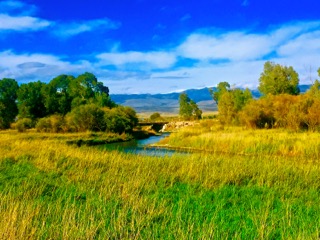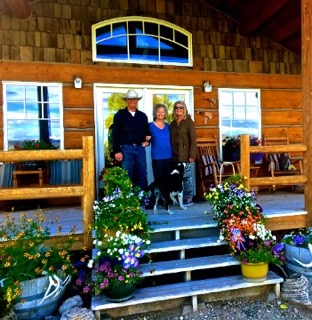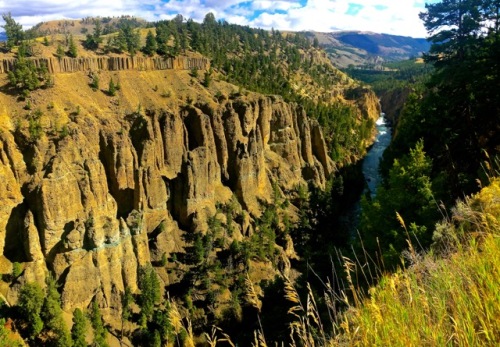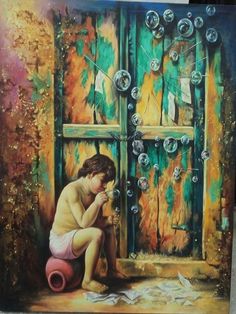POOKIE’S ADVENTURES IN THE ENCHANTED FOREST:
I spend many of my days sitting here and marveling at the amount of time and effort Naida expends preparing her most recent book for publication — talking to book designers, editors and the like, reviewing photographs, re-editing drafts day after day. Even if I had the talent to write a novel for publication, I do not think I could or would put myself through this. She seems to enjoy it, except when things go wrong of course.
Her new book, a memoir, entitled “A Daughter of the West — Herstory” can be obtained at her booth at the California State Fair (During July) or at http://www.bridgehousebooks.com/ or in the future on Amazon.
While she was reviewing the most recent edits to her memoir, Naida commented that she may have misspelled the plural of dwarf. She had learned to spell it in grammar school as dwarves but had spelled it dwarfs in the draft memoir. She wondered why spell-check had not caught it. I immediately searched the net for an answer to her concern. I discovered the traditional correct spelling indeed was dwarfs but recently a popular misspelling has begun to be commonly used. The reason for this, I found both odd and amusing. You see it all began with J. R. R. Tolkien. Yes, that J. R. R. Tolkien of “Lord of the Rings” fame. In a fascinating blog (https://jakubmarian.com/dwarves-or-dwarfs-which-spelling-is-correct/) I learned:
“Tolkien himself admitted that ‘dwarves’ was a misspelling. In a letter to Stanley Unwin, the publisher of The Hobbit, he wrote (emphasis mine):
‘No reviewer [that I have seen], although all have carefully used the correct dwarfs themselves, has commented on the fact [which I only became conscious of through reviews] that I use throughout the ‘incorrect’ plural dwarves. I am afraid it is just a piece of private bad grammar, rather shocking in a philologist; but I shall have to go on with it.’”
A fine example of how now and then scholarly mistakes become accepted over time as right and proper. There must be a phrase or word for cultural evolution caused by the errors of those who ought to know better.
Exhausted, I went to bed early that evening. Usually, because of my failing eyesight, I read books on Kindle since I can adjust the size of the text for my reading comfort. Nevertheless, I keep some books by my bed out of a stubborn and I suspect, sadly forlorn, belief that I am observing some metaphysical notion that by reading books on paper I somehow am contributing to the preservation of civilization. Before falling asleep, I picked up Overstory by Richard Powers. I read its first two chapters. Suddenly, I felt as though, despite a head full of factoids and opinions gathered over almost 80 years of existence, I, like Jon Snow, know nothing. Whether I felt fear, despair, or elation over this insight, I do not recall. Somehow at sometime in our history, we humans, we blobs of consciousness, began to believe we were important, unique. That we understood things. I realized, at that moment, we were none of those. We, individually and collectively, were only a tiny insignificant entity within that great collection of things we call life. Insignificant true but capable of great mischief and savagery.
The next morning, I watched He Who Is Not My President, once again, play the press for fools by getting them to convert an insignificant photo-op with the Butcher of North Korea into an earthshaking event driving all other news off the airways and requiring platoons commentators to tell us whether and how this may alter the geopolitical landscape.
A few days have passed by. I do not recall anything worth recording here. Yesterday evening we did walk to the monthly Jazz by the Pool concert at the community center. We got there just as it ended, ate a piece of cold pizza and returned home.
One evening, we watched the marvelous “Thief of Bagdad,” a silent film starring Douglas Fairbanks. The sets and costumes alone were worth the price of admission. Fairbanks and the other actors hamming it up was the whipped cream and cherry topping on the art-deco wedding cake.
Today, after a morning of indolence, I decided to leave the house, walk to the car and drive to eat lunch somewhere. I had taken only a few steps from the door when I noticed the wonderfully sweet smell of flowers, the perfect temperature, and the still air. I quickly decided it was too glorious a day to drive to someplace in the middle of a parking lot for lunch. I needed to walk through the enchanted forest, take some photographs of the flowers and the trees along the paths and breathe the sweet air. And, so I did.

Naida and I Live Here.
That evening we watched the 1955 movie “Trial” starring Glen Ford as an inexperienced law professor defending a Mexican teenager accused of killing a white girl. The white supremacists and Nazis in the town threaten violence against the boy and attempt to lynch him. I thought this was going to be like an early version of “To Kill a Mockingbird,” but suddenly and strangely, the focus of the movie changed to featuring Communist leader’s self-interested attempt to take over the issue for personal gain. It all ends with the Mexican kid being wrongly convicted but the bigots, upon seeing the error of their ways, and being good Americans, agree with the African-American judge that he should be shown leniency, more or less. The evil self-serving and corrupt Commie, and self-serving and corrupt he clearly was, was sentenced to jail for 30 days for contempt of court. According to the judge, he received a shorter sentence than the kid so that he and he and his Commie brethren could not use his sentencing as a cause celeb. Everyone looked as though they were happy with the outcome but for the Commie, who scowled. It all seemed like something that could be happening today. Little appears to have changed in the past sixty years here in the land where we all are created equal except for Commies and Mexicans and homosexuals. African Americans are accepted, more or less, as long as they were educated Uncle Toms, lived in their own neighborhoods, excelled in sports, and voted Republican.
Today, I drove up into the Golden Hills to visit HRM and pick up my mail. My mail consisted of a bunch of junk mail and letters from a few collection agencies threatening to hang me by my thumbs unless I pay up. I threw all of those in the trash. There were also two postcards from Barrie. Every week or so Barrie sends me a postcard with a fascinating picture on the front and an entertaining message. I love receiving them. I keep them all stored in a box by my bed.
HRM had three of his friends over. They were lazing around on the sofa watching a Sponge Bob Square Pants cartoon. They have now reached that point in their teenager-hood where they spend more time supine and draped over the furniture than upright and moving about. They eat a lot also.
I have just read in the newspaper that Lee Iacocca died (Iacocca developed the Ford Mustang, later became CEO and Chairman of the Board of Chrysler and was chosen as among the top 20 greatest business executives in American history.) A number of years ago, Suzzie and I traveled to Auburn Hills Michigan to visit Lee and his then new wife Darrien, a good friend of Suzie’s. We had dinner with Lee and Darrien. I remember the red velvet slippers with the gold embroidered design on top that Lee was wearing. I also remember Lee as a nice guy and gracious host, although at dinner he seemed a little grumpy— (he complained about the pasta). I think he and Darrien had just had a slight contretemps before we arrived. Today, I received a very nice email from Suzzie in which she wrote about our trip and her memories of Lee. Here is a portion of that email:
Earlier today I learned that Lee Iacocca had passed away. I’ve remained friends with his ex-wife Darrien, who maintained a relationship with him to the end. I spoke with her this evening and after our conversation, I recalled many fond memories of the times I spent around Lee. One of them was with you.
I’ve learned my memory is quite specific about certain things but not necessarily accurate. However, I do remember when you and I decided we needed to go to Auburn Hills where Lee and Darrien lived to pitch business, what business I’m not entirely sure, but I liked the idea of convincing the lobbying firm I was with at the time to pay my way to auburn hills to see my dear friend Darrien. You were game to go along for the ride. What a team!
I also remember Dick McCarthy was a big Mustang fan and gave me a poster of a Shelby mustang for Lee to sign. As I further recall, we were at dinner at Lee’s house and his friend Carroll Shelby happened to be there. I was so happy I could return to California with Dick’s poster signed by both. I’m quite sure neither of us returned with any business but we sure had a great time! I’m glad I have that memory of a really fun time with you…
I was very fond of Lee. He was a good man with a sparkle on his eye. He treated me with respect at a time when as a young woman in Sacramento I experienced the opposite from some men… He was one who helped build my confidence (along with you and Terry and Bill Geyer) and have made me the evil person I am today. Lol!
Rest in peace Lee Iacocca. I hope you are still wearing those bitchin slippers wherever you are.
On the 4th, I picked up HRM and Jake for lunch. We went to the Old Spaghetti House. I watched them stuff a ball of blue cotton candy into a glass of something green and wondered what something like that was doing in a so-called Italian restaurant, what it must taste like, and why teenagers seem to take such pleasure in doing things like this? After lunch, I drove them back home, returned to the Enchanted Forest, picked up Naida and drove to her daughter Sarah’s house for their annual 4 of July party. There, we played ping-pong and badminton, ate a lot, drank a little, watched a tennis match on television, and left to return home before the teenagers began their neighborhood fireworks war.

Naida (in blue) and Sarah (in Pink) in Sarah’s backyard.
I sit here today, the next day, writing this. Somehow, somewhere far at the back of my mind, I feel an itch, a sense that something happened that I should record here, or there was some idea that needed telling — but nothing comes. My memory over the past few years has become like an ancient curtain more holes than fabric, or whispers too faint to understand. Perhaps that is a good thing, live for the day, forget the stories. On the other hand, my memories were the raw material of the stories I revel in. I like to shape them for their sake — for my love of a tale.
That evening, we watched Charles Laughton in “The Hunchback of Notre Dame,” followed by Douglas Fairbanks, Jr., Cary Grant, and Victor McLaglen tearing up the scenery in “Gunga Din.” The next morning while eating breakfast Naida and I enjoyed the old Wallace Beery and Jackie Coogan version of “Treasure Island”. I guess, as long as I am in the more sedentary period of my existence, old movies and fantasy novels will have to do as a replacement for the adventure and travel I may have enjoyed earlier in my life. I certainly experience fewer blunders and horrors now than I did then. Maybe that is a good thing too.
Then, it was off to the Golden Hills to pick up HRM and Big, Tall, Long-haired Jake. We drove into the Delta, to Rio Vista and Foster’s Restaurant. Haden, Nikki and I had been there years ago and H wanted to show it to Jake. During the drive, I was entertained by teen-talk — the dreams (To become famous race-car drivers when they are old enough to get a drivers license), the annoyance with anyone or anything limiting their desires (“I want to be rich enough to get the government to remove speed limits just for me so that I can drive my car as fast as I want.”), adolescent gossip (about the teacher who wears sexy clothing to school). This is that age when the explosive growth of their forebrain containing the ego assures them that the universe is there for their pleasure. It is only when they reach their middle twenties that the rest of their brain catches up allowing them to acknowledge that there may be others with similar claims. Strangely, they seemed to believe that if you were rich enough you could get away with anything. Trumpism poisons everything.
Foster’s Restaurant in Rio Vista is known for its display of the stuffed heads of just about every large mammal known to have roamed Africa and North America in the past one hundred years or so. All slaughtered by a bootlegger, turned taxidermist, turned publican who owned the bar from the walls of which he hung the severed heads of the hundreds of animals he butchered. But that of course was another era when things like that were more acceptable, like slavery and concentration camps. But, from a historical perspective, it does preserve the visage of those animals soon to become extinct so that we, if we survive, can have a drink, stare at their remains and ponder what we have wrought.

At Foster’s Restaurant in Rio Vista.
I ate an elk hamburger. I was sure the elk that provided the chopped meat was old and at the point of death (or perhaps already dead) before it was harvested, because it was as dry and tough as one would expect the aged to be.
Then it was off to Locke the historical old Chinese town in the Delta. We walked around the town, visited the shops, explored the alleys and dropped into Al the Wop’s Italian Restaurant and bar and gaped at the hundreds of dollar bills stuck into its ceiling.

HRM and Jake in Locke California.
When I first arrived in California in 1970-71 and was taken to that restaurant, I was still shocked and repulsed by anyone uttering that word. As a person of my generation and upbringing “Wop” was as repulsive to Italian Americans as “N****r” was to African-Americans (although without the same bloody history) or “spic” to Puerto Ricans. Use of the word, even by Italian-Americans, was grounds for instant mayhem being inflicted on the speaker. I could not even say the word without feeling disgusted with myself and yet here in Locke there it was, up there in a sign on a business no less, as well as falling lightly off the tongue of everyone around me. California was certainly an odd place, I thought.
After that little adventure, we drove through the Delta and back into the Golden Hills. The next morning, Naira and I drove to Denio’s Auction in Roseville where I purchased this year’s Hawaiian shirt and Naida bought a shovel.
The following day, Naida left early to play tennis. After she returned, we sat at our respective computers all day and did nothing more except walk the dog in the evening. I did not even take a nap.
Today, Tuesday, I did not walk the dog nor did I watch movies on Television. I did, however, begin reading Vital Question by someone named Nick Lane. It is not a mystery novel. It is a non-fiction tome about, as the cover points out, Energy, Evolution and the Origins of Complex Life. As I mentioned in a previous post, after reading about ten trashy novels, I like to curl up with something non-fiction. I guess it is something like cleaning one’s palate.
Some review copies of Naida’s memoir arrived today. We spent a few hours together reviewing them for typos and other errors. She said she was thankful there were not too many of them as there sometimes is. I thought there were a lot. I found participating in the process pretty exciting. I cannot remember ever assisting an author before. Usually, it was politicians, bureaucrats, and other lawyers and as everyone knows that is neither exciting, nor interesting, nor fun.
Wednesday, the day before the State Fair begins, Naida busied herself addressing last minute crises. I did nothing but read and answer her questions whenever she thought my input might have some value.
Tomorrow, after helping Naida drive copies of her books and sales material to her booth at the fair, I leave for the Big Endive by the Bay and my immunotherapy treatment. The pendency of that trip did not require I do anything to prepare, so I didn’t, happily. I did read more of Naida’s memoir and another chapter of The Vital Question which was all about chemical reactions in the earth’s primeval oceans. I did not understand it so I quit and consoled myself with Oreos and milk.
Read Full Post »




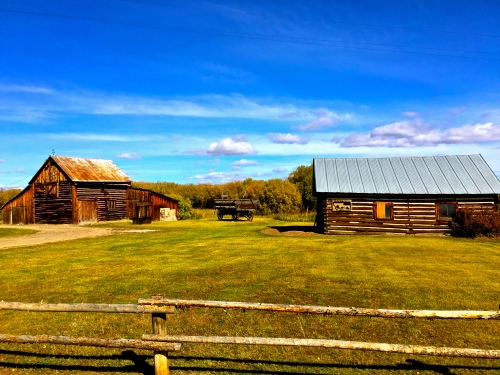
 The Big Hole Battlefield Site. The Nez Perce were camped in the field a little right of the center of the photograph. The soldiers were hidden in the trees and bushes that appear slightly reddish. The cannon was placed on the large hill just below the tree line on the left.
The Big Hole Battlefield Site. The Nez Perce were camped in the field a little right of the center of the photograph. The soldiers were hidden in the trees and bushes that appear slightly reddish. The cannon was placed on the large hill just below the tree line on the left.





